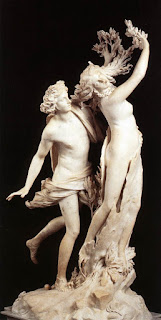Here are some amazing passages from J.D. Salinger's Nine Stories. Full portraits in miniature. This is a masterclass not only in crafting sentences, but in perceiving the true marks of character.
"A Perfect Day for Bananafish":
She was a girl who for a ringing phone dropped exactly nothing. She looked as if her phone had been ringing continually ever since she had reached puberty.
 "Just Before the War with the Eskimos":
"Just Before the War with the Eskimos":
From his breast pajama pocket he two-fingered out a cigarette that looked as though it had been slept on. [...] He lit his cigarette without straightening out its curvature, then replaced the used match in the box. Tilting his head back, he slowly released an enormous quantity of smoke from his mouth and drew it up through his nostrils. He continued to smoke in this "French-inhale" style. Very probably, it was not part of the sofa vaudeville of a showoff but, rather, the private, exposed achievement of a young man who, at one time or another might have tried shaving himself left-handed.
And:
He spoke exclusively from the larynx, as if he were altogether too tired to put any diaphragm breath into his words.
"Down at the Dinghy":
His sentences usually had at least one break of faulty breath control, so that, often, his emphasized words, instead of rising, sank. Boo Boo not only listened to his voice, she seemed to watch it.
"For Esmé — with Love and Squalor":
They sang without instrumental accompaniment — or more accurately, in their case, without any interference. Their voices were melodious and unsentimental, almost to the point where a somewhat more denominational man than myself might, without straining, have experienced levitation.
"De Daumier Smith's Blue Period":
The fact is always obvious much too late, but the most singular difference between happiness and joy is that happiness is a solid and joy a liquid. Mind started to to seep through its container as early as the next morning.
[Bliss, then, might be a sublime gas. What is this thing I feel now? It is subtler and more complex than joy.]
It's not lost on me that many of these selections are related to breath and breathing — a current preoccupation of mine.
Then there's "Teddy."
His voice was oddly and beautifully rough cut, as some small boys' voices are. Each of his phrasings was rather like a little ancient island, inundated by a miniature sea of whiskey.
While on an ocean liner, there's much made of whether what happens happens inside or outside of the mind. Teddy's a ten-year-old brat or maybe a spiritual guru. Since he was four, he's been able to get out of the finite dimensions.
"The trouble is," Teddy said, most people don't want to see things the way they are. They don't even want to stop getting born and dying all the time. They just want new bodies all the time, instead of stopping and staying with God, where it's really nice." He reflected. "I never saw such a bunch of apple-eaters," he said. He shook his head.
When he was six, he saw that everything was God — his sister was God and the milk was God and he watched her pour God into God. He claims to be reincarnated, having made some good spiritual advancement in his previous life. Clearly, according to Teddy, Adam should never have eaten the apple in the Garden of Eden — we need to vomit up all the logic.
"I grew my own body," he said. "Nobody else did it for me. So if I grew it, I must have known how to grow it. Unconsciously, at least. I may have lost the conscious knowledge of how to grow it sometime in the last few hundred thousand years, but the knowledge is still there, because — obviously — I've used it.... It would take quite a lot of meditation and emptying out to get the whole thing back — I mean the conscious knowledge — but you could do it if you wanted to. If you opened up wide enough."
I find it strangely serendipitous to have found this story so late in my life, when I am learning to open my mind and my body wider.







